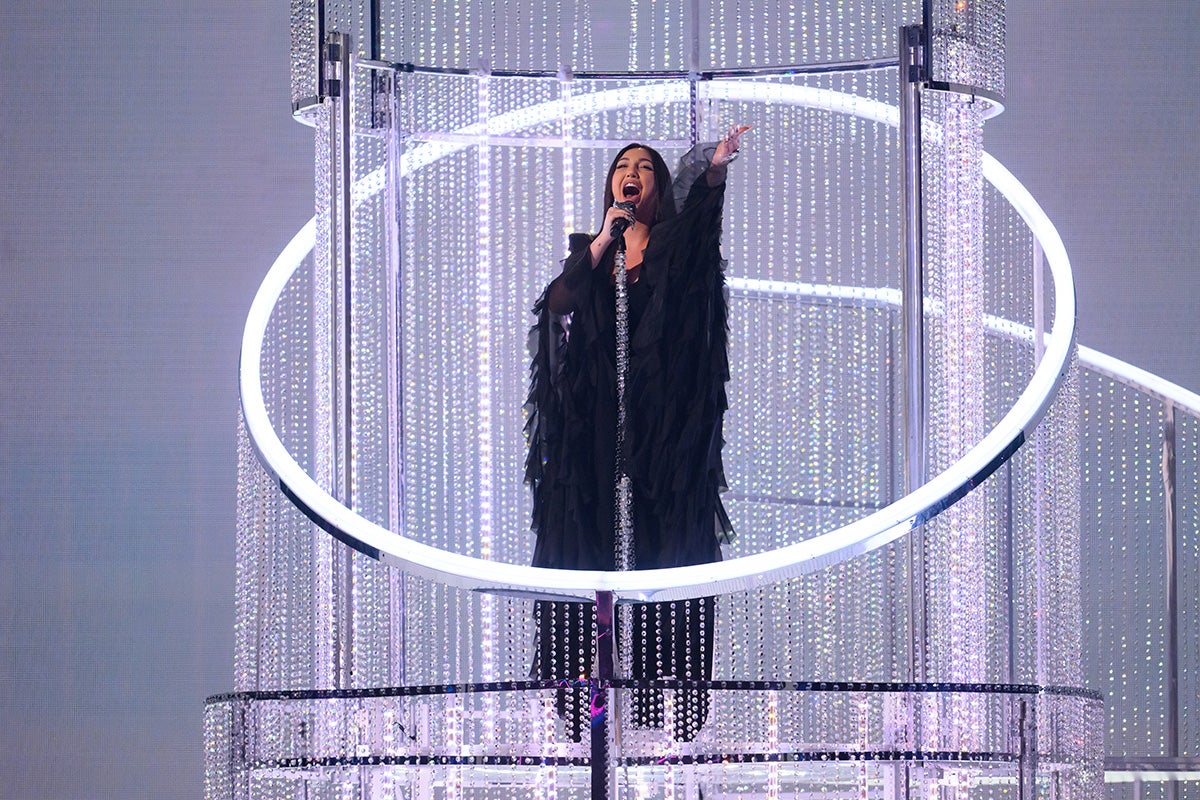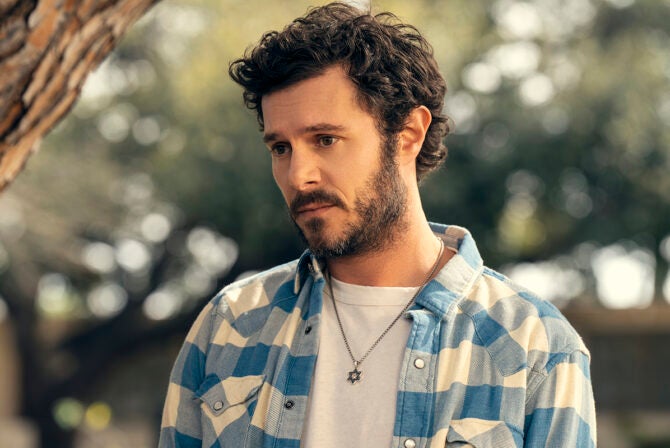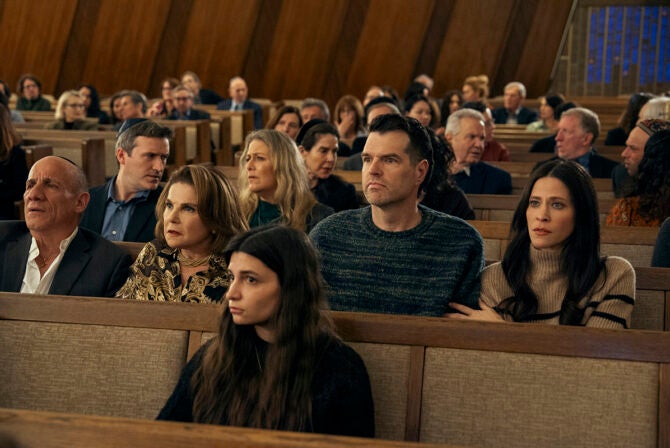“Am Yisrael chai,” an emotional Yuval Raphael yelled out to the crowd at the Eurovision after giving a flawless rendition of her song “New Day Will Rise,” a ballad reminiscent of Jacques Brel’s “Ne Me Quitte Pas.”
The Israeli contestant of the popular singing contest, Europe’s biggest televised event, and an October 7 survivor, did indeed rise to the top of the score charts. She came in second this past Saturday, May 17 to Austria’s JJ, with his operatic “Wasted Love.”
Raphael earned second place thanks to the votes of the audience at home — votes in the Eurovision are divided equally between the countries’ professional juries and open votes from the public. Among the public, she got those coveted 12 points, the maximum score, from 12 countries as well as from non-Eurovision participating countries, who all vote together as one bloc. The 24-year-old, who won Israel’s “The Next Star (to the Eurovision)” song contest to participate in the competition, earned the most votes from audiences at home, 297. Among the juries, the country got 60 votes. Only one country gave Israel 12 points: Azerbaijan, the Muslim majority country that is a longtime ally of Israel, and who this year was represented by an Azerbaijani Jew. Israel has been participating in the Eurovision since 1973, since its public broadcast entity is a member of the EBU (European Broadcast Union). The country has won the competition four times.
Unlike last year, when Eden Golan took to the stage to incredibly loud booing flanked by a group of dancers to sing “Hurricane,” a song originally titled “October Rain,” Raphael stood alone on the stage in Basel, Switzerland, and as the song hit its crescendo, she rose to the top of a crystal-chain-adorned balcony that looked like a gigantic chandelier. Lights and images of water falling were screened behind her, adding to the dramatic feel, but also a reminder of the song’s sole Hebrew lyrics, a quote from the Song of Songs: “Vast floods cannot quench love/Nor rivers drown it.”
The set of the number was inspired by movies like “Lion King,” “Titanic,” Romeo and Juliet” and “Evita,” that all have dramatic moments featuring balconies, elevation and rebirth — Raphael herself has said that to her, the song is about “rebirth” and “positivity.”
Yet many saw in it another kind of symbolism. Raphael, who spent a few years of her youth in Switzerland with her family, recreated the famous 1901 Basel balcony, that of the founder of modern political Zionism Theodor Herzl standing at a Swiss hotel in Basel for the first Zionist Congress. Songwriter Keren Peles, who wrote both “Hurricane” and “New Day Will Rise,” sees in Raphael the heart of that dream, the heart of Israel itself, “our broken but beautiful” heart.
But it wasn’t just historical symbolism that Raphael’s image echoed in that moment. Like many artists before her, Raphael wore loose and dramatic black cape sleeves that, when she lifted her hands up dramatically in her rendition of the ballad, looked like Batman’s logo. To some discerning viewers, this was a reminder of Ariel Bibas, who loved the dark-outfit-clad superhero. Both echoes were unintentional, as designer Victor “Vivi” Belaish shared: “Sometimes the universe does its own styling.”
Yuval herself ascended from literal ashes to that balcony. She played dead under a pile of corpses at the Nova festival on October 7, at the behest of her father. In those months after the deadliest attack against Jews since the Holocaust, a phone call between her and her father circulated, with her telling her father that there were dead people all around and him responding with panic and incredulity before urging her to pretend to be one of them. Raphael spent eight hours in a bomb shelter along with 39 people — she was one of only 10 survivors. In the crowd at her Eurovision performance, Raphael spotted two of the women that she survived with in that shelter, and seeing them, she said, meant the world to her — a whole theater full of people who had no idea what she had been through, except for those girls.
The artist also had some very high-profile supporters, including Israeli “Wonder Woman” herself, Gal Gadot, who called her a “champion” and a “hero” in a private FaceTime call before the finals and told her she had already won the competition in her eyes. “Celebrate your craft, it’s a creation of love and so much light, it’s such a moving song perfectly tailored to you, you’re a big light,” Gadot went on to tell the singer. Raphael then told her about the peace she feels on stage before suddenly worrying about the evil eye — the two then went on a chorus of anti-bad luck refrains with Raphael saying “hamsa, hamsa, hamsa,” and Gadot responding with a “pu, pu, pu.”
It’s clear the conversation didn’t jinx anything. Despite protests, boos and even an audience member’s attempt to storm the stage with red paint, Raphael’s performance went off without a hitch. As she sung that chorus, “New day will rise/Life will go on/Everyone cries/Don’t cry alone,” we saw a vision of a future in which we can find solidarity and light not by ignoring our grief — a grief that is such a big part of the singer herself — but through seeing each other and our pain.








